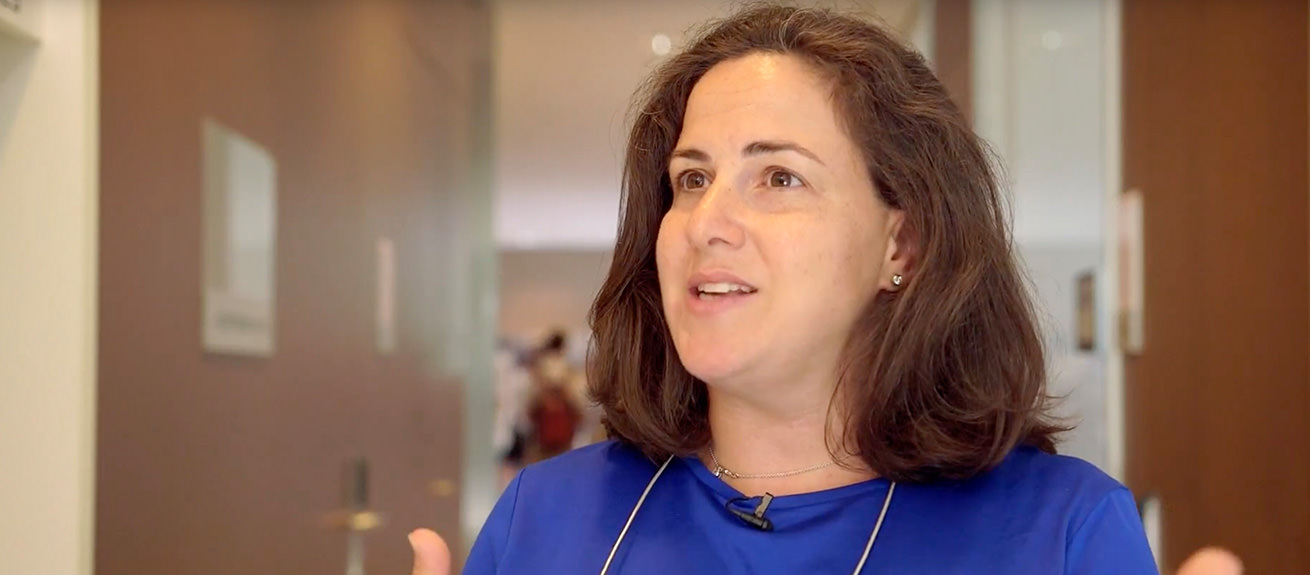ZINA SANYOURA – MBA Class of 2008 – Executive Director – Private Markets Specialist, UBS
IMD: Which stage were you in your career when you decided to do the MBA? And why did you decide to do the MBA at IMD?
ZINA SANYOURA: Right before I joined IMD, I had been working with the IFC, the private-sector arm for the World Bank, for around four years, and I was doing investments in financial services across emerging markets. I had actually gone through a panel promotion, at which point normally they usually require an MBA but I actually passed the promotion without an MBA. And I thought, “Well, that’s great,” and it was such a good learning experience, but I still felt that I needed to take time off to see whether I wanted to stay in that field or not. So that’s how I decided to actually do an MBA.
And I was based in the US at the time where there was a lot of pressure to maybe apply to US schools. And a lot of my colleagues at IFC had actually done executive programs at IMD and they had proposed that I go check the school out. And I was really impressed by the small class size and the sort of very intimate relationship that professors have with the students – the ratio between professors and students – but also the holistic approach on the soft skills side.
So, my background is in finance, I had just completed the CFA certification, so I wasn’t looking for something more technical; I was actually looking for something that’s really focused on leadership, on management and on organizational behavior.
IMD: What were your takeaways? What are your best memories?
ZINA SANYOURA: What I remember very well is that it was a really intense 10 months because I think it felt like somebody was holding up a mirror the whole time and it was very tough on an emotional level because basically people are telling you your weaknesses – but also your strengths. But you have to face your weaknesses in a very raw manner. And that was an eye-opener because ultimately you really need to understand who you are, what you are, what you’re good at, what you’re not good at, and how that actually resonates with people around you. And so for me that was one of the biggest takeaways.
Ultimately, I felt like I knew myself a lot better after I got out of the program. A lot of the ways people reacted to me in certain group contexts or in certain project contexts, you kind of now understand a little bit more how that dynamic works and you’re able to navigate through that.
Apart from that, I think it was a very intense learning experience with the 90 students. Typically, everybody in that class was within a certain similar sort of point in their career so it was a good time to understand where people are at; you learn from their experiences. And there was a lot of exchange, because there was that intimacy.
IMD: What do you think is the lasting impact of the program?
ZINA SANYOURA: It has advanced my career in a way to help me find what it is that I want to do and what it is that I have a passion for, rather than just kind of being swayed by what the general market expects you to do. And I think, for me, that was one of the reasons I wanted to take that step away from my career, take 10 months off and really just look at where is my next step rather than it being a sort of a haphazard or ad hoc kind of step.
And for me, the importance is really being able to do that always keeping a “direction to the North Star.”
IMD: You’re a very engaged member of the MBA community. What keeps you coming back?
ZINA SANYOURA: I stay engaged with the current MBA programs through the mentoring programs, through mock interviews, especially with people who have a finance background.
For me also, coming back here to attend reunions where you go back to diving in, into case studies, there’s a bit of mental gymnastics, which I think is really interesting. You don’t get to do that much in your day-to-day work. I think that the program today looks really interesting in terms of career transition; it’s always something that people want to talk about – you know, what’s the next step – so for me I think that was a big draw.
And of course, going back and speaking to my alumni but also to other alumnis – and that’s always a network that’s been really helpful in keeping connected to.



